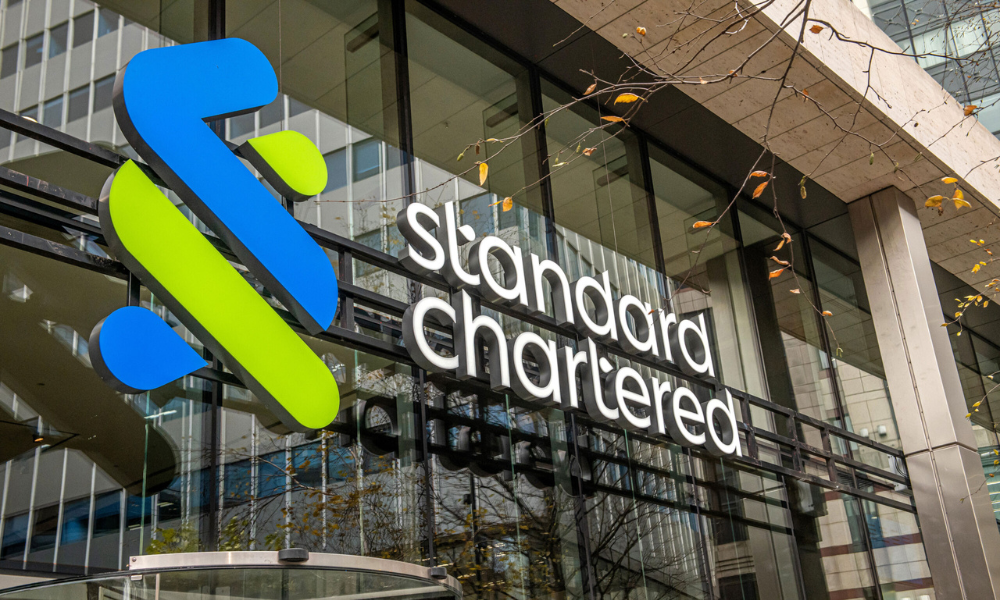Newly revealed documents reportedly show bank’s alleged breaches of US sanctions

Standard Chartered Bank, one of the UK’s largest banks, is under scrutiny following allegations that it facilitated billions of dollars in transactions for Iran-linked entities and terrorist organisations.
The accusations stem from newly revealed documents in a New York court filing, highlighting the bank’s alleged breaches of US sanctions from 2008 to 2013.
The court documents, filed by two whistleblowers — Julian Knight, a former Standard Chartered executive, and Robert Marcellus, a currency trader — assert that the bank processed over $100 billion (£78.3 billion) in transactions that were not previously disclosed. The transactions reportedly involved individuals and entities designated by the US government as supporters of terrorist groups such as Hezbollah, Hamas, al-Qaeda, and the Taliban.
An independent expert, David Scantling, who has extensive experience in counter-terrorist financing, provided analysis supporting the whistleblowers’ claims. According to Scantling, the newly extracted data includes over half a million transactions that were hidden in the bank’s electronic spreadsheets. These transactions, processed between 2008 and 2013, allegedly facilitated numerous illegal activities for sanctioned Iranian banks and Middle Eastern money exchanges financing terrorist organizations.
Standard Chartered, which has its headquarters in London and primarily serves customers in Africa, the Middle East, and Asia, has denied these allegations. The bank’s spokesperson stated that the claims are based on previously discredited information and reiterated confidence that the courts will reject these renewed attempts.
The allegations have brought to light the involvement of the UK government, specifically the intervention by then chancellor George Osborne in 2012. Osborne wrote to key US officials, including Ben Bernanke, then chair of the Federal Reserve, and Tim Geithner, then Treasury secretary, seeking to avert criminal prosecution for the bank.
Following this intervention, the US Department of Justice decided against prosecuting the bank, opting instead for a deferred prosecution agreement. This agreement led to a $300 million (£235 million) fine, but no criminal charges were filed against any bank executives.
Despite the 2012 settlement, the whistleblowers’ new evidence suggests that the bank’s misconduct was more extensive and continued beyond the periods initially disclosed. The whistleblowers claim that the US authorities dismissed their case in 2019 based on false statements that the evidence did not reveal any new violations.
Scantling’s declaration in the recent court filing contradicts the US government’s stance. He states that the hidden data, which was not immediately visible but could be extracted through well-known forensic techniques, includes records of transactions involving sanctioned Iranian banks and companies. These transactions allegedly continued after the bank claimed to have ceased its Iranian operations in 2007.
Further scrutiny revealed that Standard Chartered processed transactions for a Pakistani company, Fatima Fertiliser, known for producing materials used in Taliban roadside bombs. Additionally, the bank reportedly facilitated 73 transactions for a Gambian front company owned by Hezbollah financier Mohammad Ibrahim Bazzi.
Daniel Alter, former general counsel at the New York Department of Financial Services, described the new disclosures as “shocking” and significantly worse than what was previously admitted by the bank. He emphasised the disturbing connections to terrorist organisations, which were not apparent in the data initially provided to regulators.
“This shows a frightening connection to not just commercial entities, but terrorist organisations, terrorist front companies for organisations such as Hamas, Hezbollah, al-Qaeda, the Taliban – things that make up a regulator’s nightmare – and we didn’t know that: it was never disclosed to us. And it wasn’t apparent in the data that we had. It’s a whole different story,” Alter told the BBC.
Both the FBI and the US Department of Justice have declined to comment on the issue, while Standard Chartered maintains its stance that the whistleblowers’ claims are without merit and that previous investigations by US authorities have found no evidence of undisclosed sanctions violations.
In 2021, the Prudential Regulation Authority (PRA) imposed a financial penalty on Standard Chartered Bank of £46.55 million for failing to be open and cooperative. The fine was also for failings in the bank’s regulatory reporting governance and controls in relation to a tailored PRA liquidity expectation.
Want to be regularly updated with mortgage news and features? Get exclusive interviews, breaking news, and industry events in your inbox – subscribe to our FREE daily newsletter. You can also follow us on Facebook, X (formerly Twitter), and LinkedIn.



